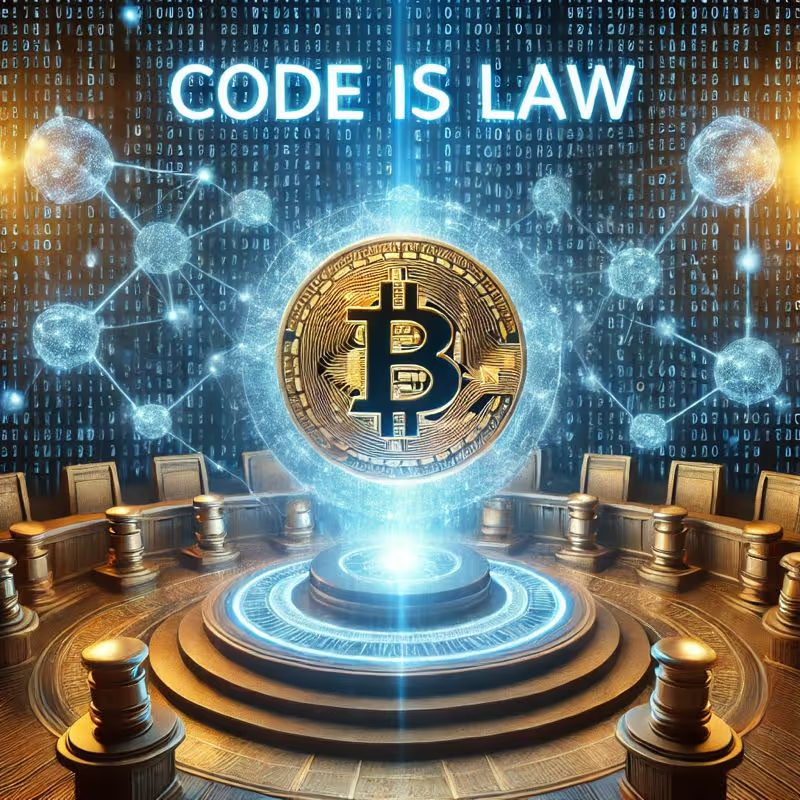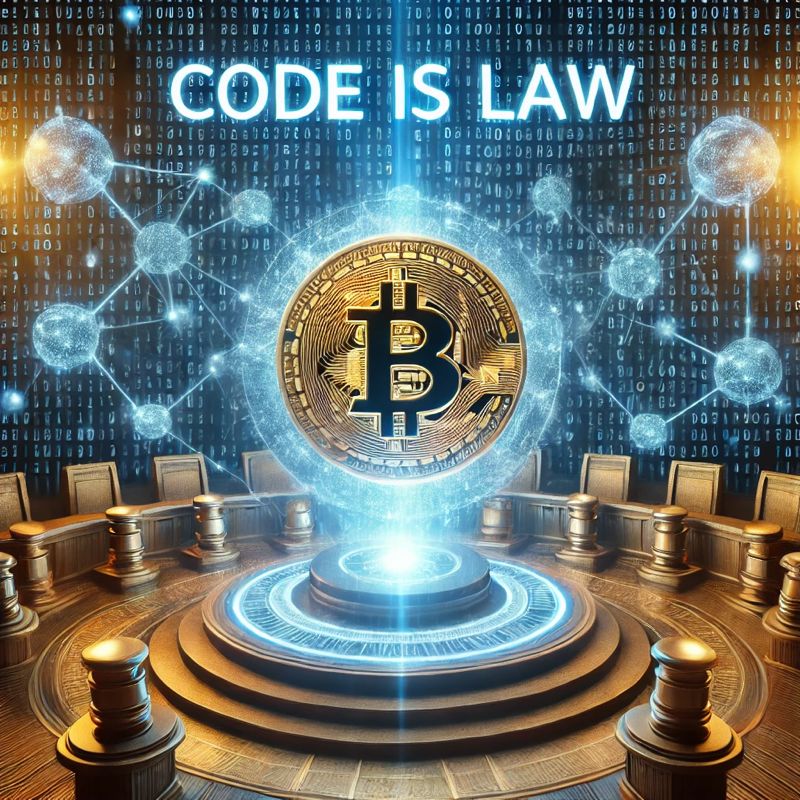
The phrase “code is law”, coined by Lawrence Lessig in 2000, continues to resonate in our increasingly digital world. Originally, Lessig used this concept to highlight how software would come to shape the rules governing the Internet. His foresight proved accurate, as today’s interconnected world is increasingly dictated by digital frameworks, from social platforms to cryptocurrency networks.
Lessig’s belief was that although the Internet appeared destined to be a space of open interaction free from governmental oversight, rules would still emerge. These rules, embedded in code by software engineers, would reflect the values, biases, and knowledge of their creators, becoming the invisible framework for society’s online interactions. For Lessig, understanding this dynamic was essential to shaping a digital future aligned with human values.
Key Takeaways from Lessig’s “Code is Law”
Lessig’s ideas remain as relevant today as they were two decades ago, especially in light of the emergence of blockchain and cryptocurrency. His thesis can be distilled into three crucial points:
- Code as a Form of Regulation: The Internet’s governing rules are a mix of physical law and code. While code enforces constraints on what can be done online, governments have the ability to compel engineers to adjust code when necessary.
- Code Reflects Cultural Values: The structure and behavior of code are not value-neutral. Whether consciously or unconsciously, the people designing these systems embed their beliefs and priorities within them. This makes it essential to evaluate which coding frameworks align with societal values.
- Regulation is Unavoidable: Even in decentralized spaces, regulation is inevitable. In the absence of government oversight, private entities often step in to validate and enforce standards. For instance, industries rely heavily on third-party certifications to provide trust and credibility in the absence of direct governmental control.
Reframing “Code is Law” in the Crypto Era
The rise of blockchain and cryptocurrency has redefined “code is law” from an academic idea into a tangible reality. Today, code doesn’t just influence how the digital world operates; it dictates it. This is most evident in smart contracts, which are self-executing agreements where the terms are encoded into the blockchain.
The Role of Smart Contracts
Smart contracts represent the ultimate embodiment of “code is law.” They remove intermediaries, enabling transactions and agreements to be carried out automatically when predefined conditions are met. Unlike traditional legal systems, which are often subject to human error and bias, smart contracts are:
- Immutable: Once coded, they cannot be altered without consensus.
- Objective: Their enforcement is consistent, bypassing the variability of human judgment.
- Transparent: Stored on the blockchain, they provide an unalterable record of transactions.
This approach can transform industries by reducing costs, enhancing efficiency, and increasing trust in the systems that power our digital lives. However, the rigidity of smart contracts presents challenges, particularly in complex, unpredictable scenarios.
The Limits of Code-Driven Regulation
While smart contracts excel in precision and consistency, they lack the adaptability of human judgment. Real-life situations are often too complex to be distilled into binary code, leading to scenarios where human creativity becomes necessary.
For example, consider a dispute involving unforeseen circumstances not accounted for in a smart contract’s logic. A human judge may weigh the context and deliver a fair resolution, whereas the smart contract remains bound by its strict parameters. This suggests that even in a world increasingly dominated by code, there will remain a need for human-led arbitration to address the gaps.
Decentralized Governance: The Interplay of Code and Law
The broader implications of “code is law” extend beyond smart contracts and into the heart of governance itself. In the crypto space, we’re witnessing a profound shift where code does not merely guide behavior but defines what is possible. Governments can legislate against certain actions, but code determines whether such actions can be executed in the first place.
This raises critical questions about sovereignty and the balance of power between traditional institutions and decentralized technologies. For instance:
- Who holds the final authority? In a decentralized world, is it the developers who write the code, the users who execute it, or governments that attempt to regulate it?
- What happens when conflicts arise? If code enforces a rule that clashes with local law, which prevails?
The answers to these questions will shape the trajectory of not only cryptocurrency but the broader relationship between technology and governance.
The Promise of Bitcoin and Decentralized Systems
Whether or not blockchain “swallows the Internet whole,” as some enthusiasts predict, one fact is clear: decentralized technologies like Bitcoin are reshaping how we think about autonomy, governance, and individual empowerment.
Bitcoin, in particular, represents a revolutionary step forward. It offers a way for individuals to transact without intermediaries, save in a deflationary asset, and operate outside of traditional financial systems. Combined with the principles of “code is law,” Bitcoin has the potential to:
- Empower individuals to achieve financial sovereignty.
- Reduce reliance on centralized authorities.
- Foster innovation by enabling trustless, global systems.
While the road ahead is uncertain, one thing is certain: the interplay between code and law will continue to evolve, presenting opportunities and challenges alike. The key is to embrace the potential of these technologies while remaining vigilant about their societal implications.
Ready to Join the Future of Decentralized Mining?
At Sazmining, we believe in empowering individuals to take control of their financial future through sustainable and transparent crypto mining solutions. Whether you’re new to cryptocurrency or a seasoned enthusiast, our platform offers the tools and support you need to thrive in the decentralized economy.
Discover how you can contribute to a greener blockchain ecosystem while earning rewards. Explore our services and start your journey toward financial sovereignty today!

